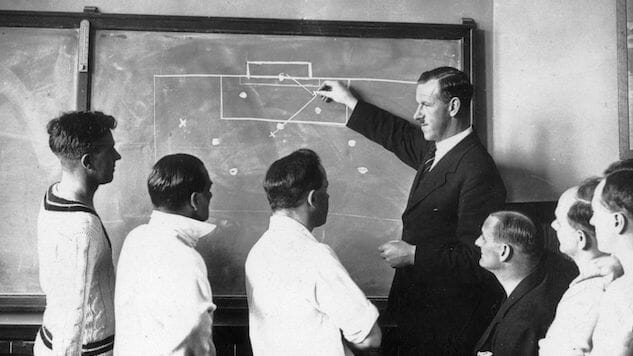The Secret Soccer Analyst: Data Analysts Must Adapt Quickly or Die
Photo by E. Dean/Getty
There is a famous quote that reads, “It is not the strongest of the species that survives, nor the most intelligent that survives. It is the one that is most adaptable to change.”
Whether it’s Blockbuster video getting bankrupted by Netflix or Myspace being blown out of the water by Facebook, the modern business world is fast moving and ruthless. Progress waits for no one, and football is no different.
A quick glance at the English Football pyramid presents a graveyard of once successful football clubs who believed they were ‘bigger than their current division™.’ Meanwhile traditionally small clubs like Bournemouth, Hull City and recently promoted Brighton thrive.
It’s not just chairmen and chief executives who are feeling the pinch; as an analyst, it’s an equally daunting time. Barely a week goes by when I don’t have some form of interaction with a fellow analyst, which leads to a guessing game about what the next few years will look like for us in this industry.
Every week there seems to be a new Twitter account dedicated to football analytics. Almost daily I receive emails from analytics startups who have developed a new groundbreaking algorithm for something or other, and universities are full of prodigious 18-21 year olds who can seemingly do it all at a young age.
Then, a few weeks back I saw this Tweet from Mark Cuban and, to be very frank, shit my pants a little bit:
The new NBA pic.twitter.com/RkV6PkwXaD
— Mark Cuban (@mcuban) March 28, 2017
This is the owner of an NBA team learning some complex stuff which that is of critical importance to the future of sports analytics. When the boss of the team knows how to do your job, you better be ready to do it better or you will be out of work.
Please don’t mistake this for alarmism; this is truly an exciting development. As owners in sports are more and more likely to be tech and data analytics savvy, they will inevitably invest more in the field, both financially and emotionally.
If I wrote out my skill set when I started this job, the list would probably be one tenth the size it is now. As an analyst, you either adapt or die, it’s that simple. That means learning new technical skills as well as social skills. Either way, if you don’t change, the football industry will not wait for you, and you’ll be “looking for new opportunities” soon enough.
-

-

-

-

-

-

-

-

-

-

-

-

-

-

-

-

-

-

-

-

-

-

-

-

-

-

-

-

-

-

-

-

-

-

-

-

-

-

-

-








































